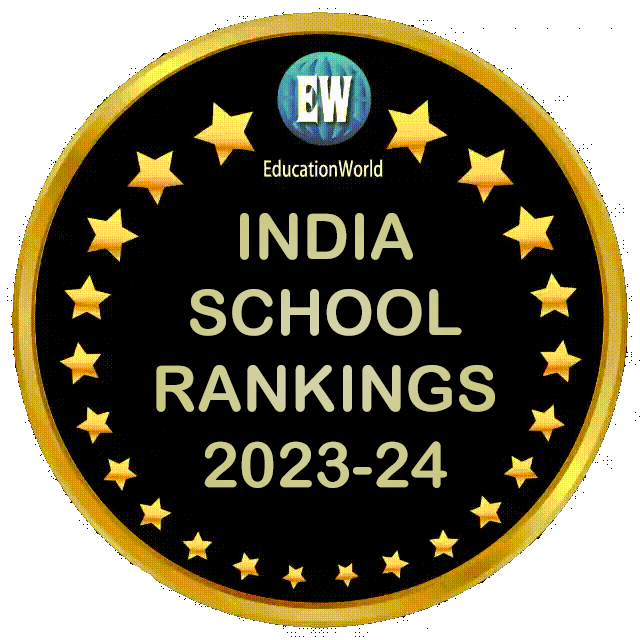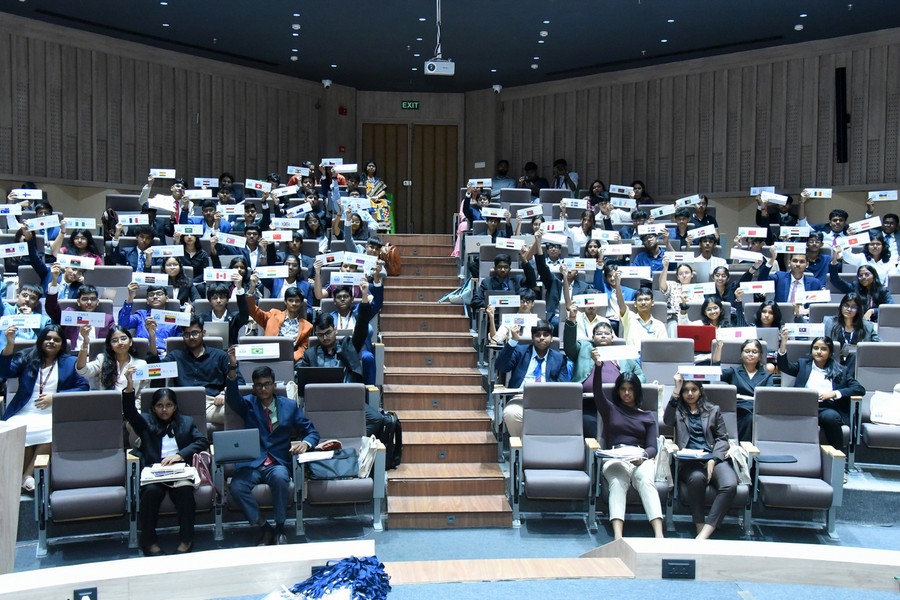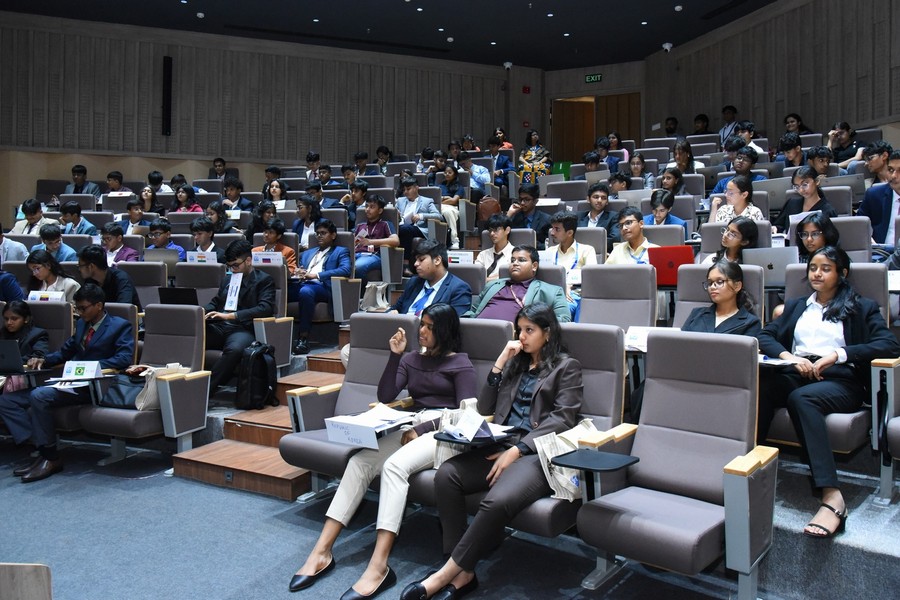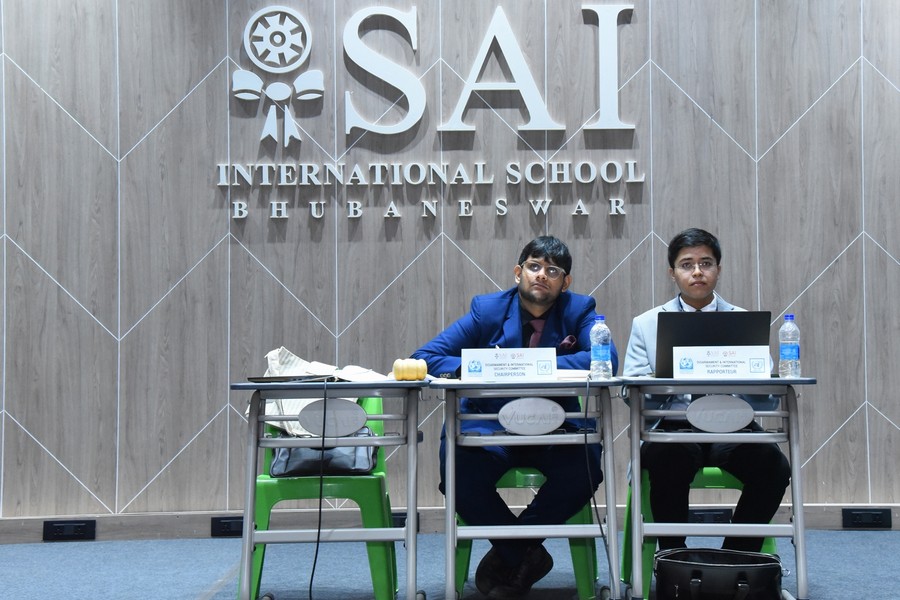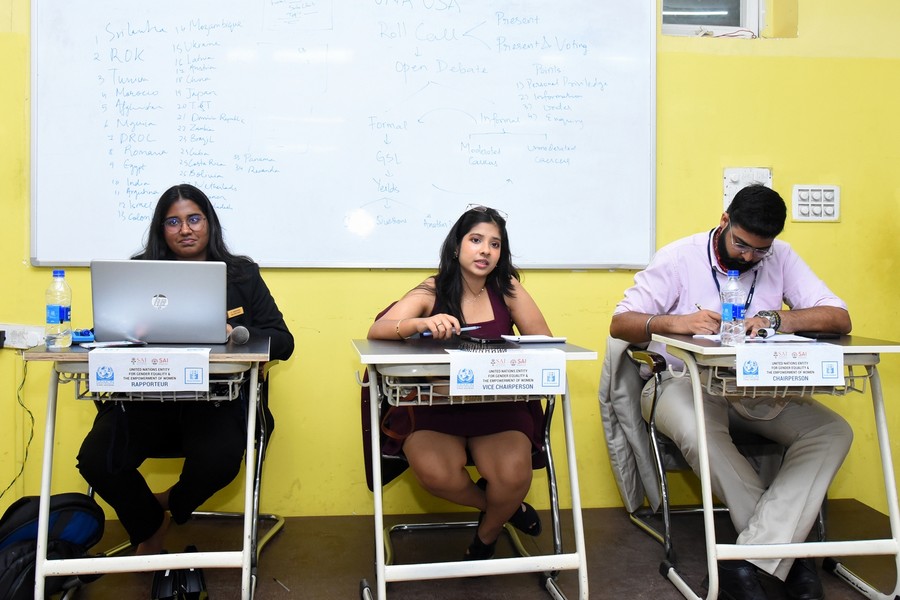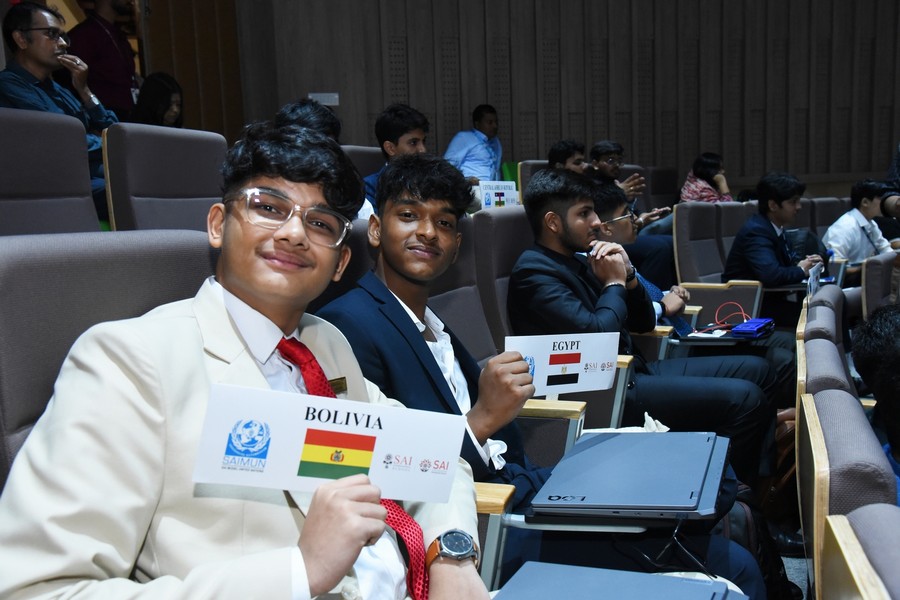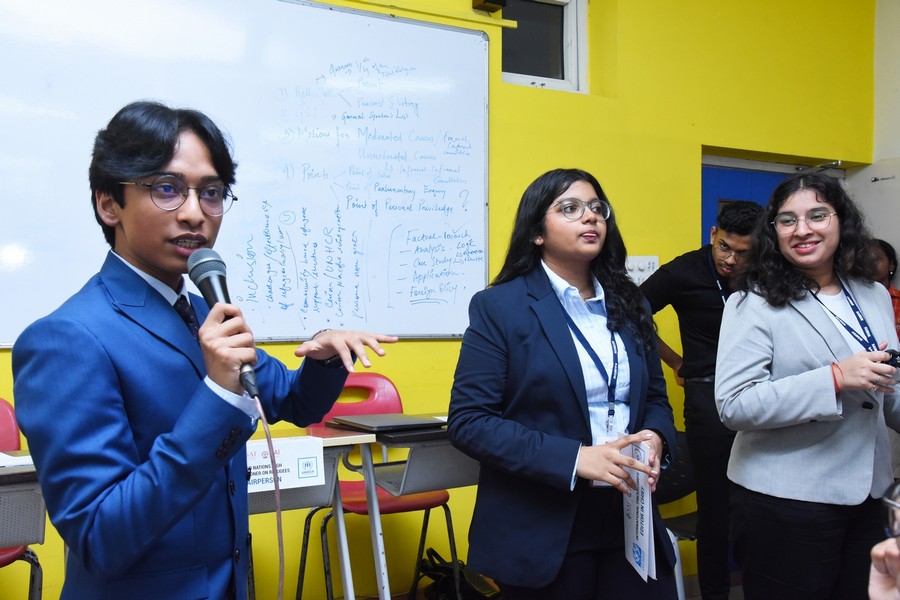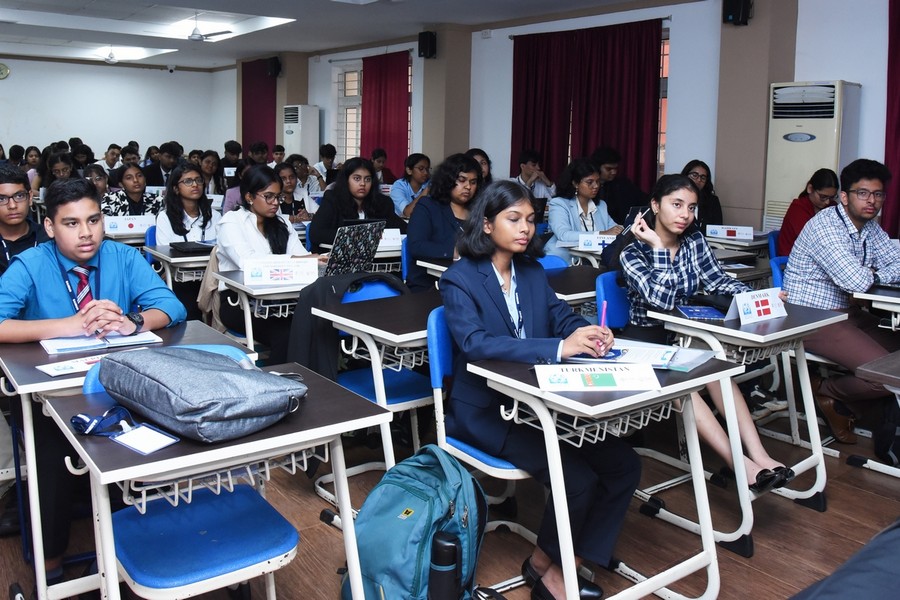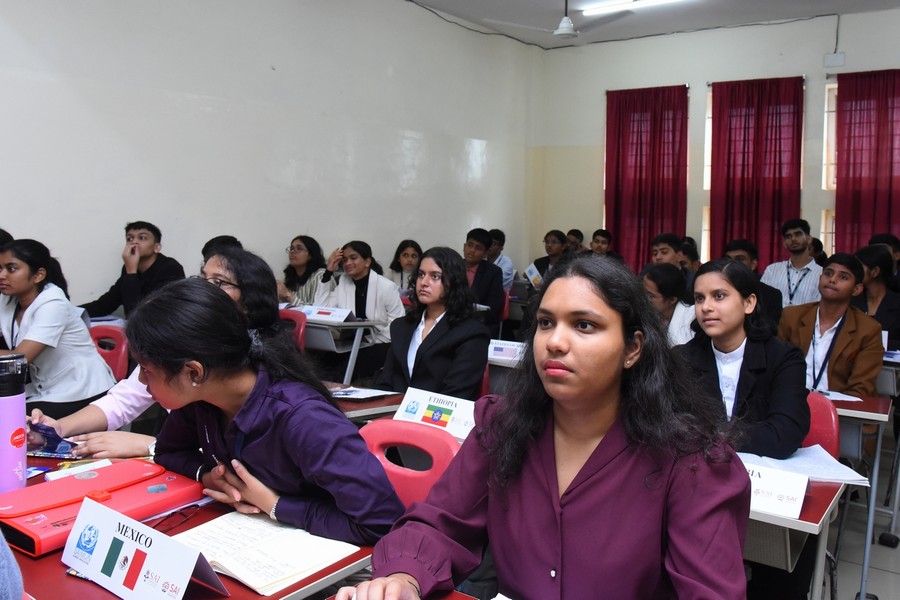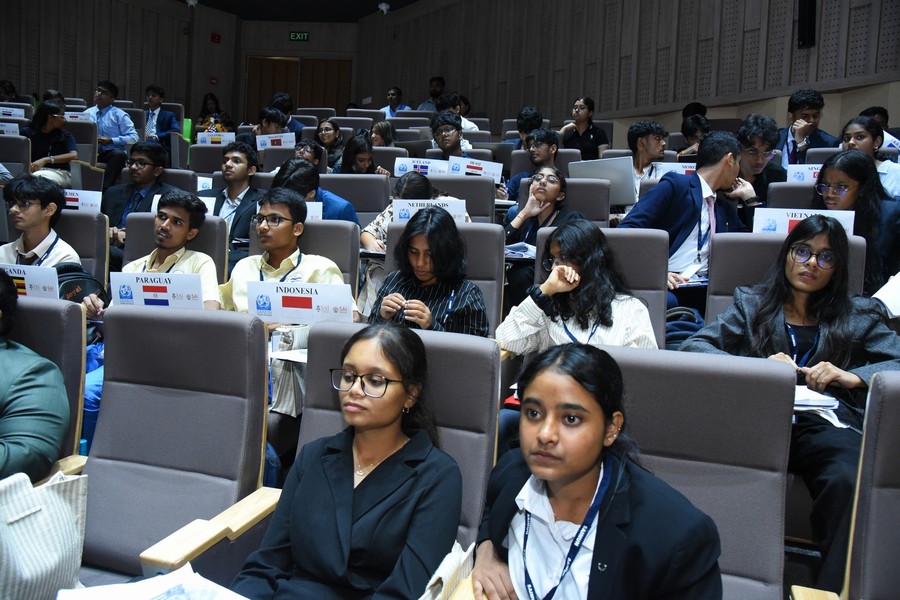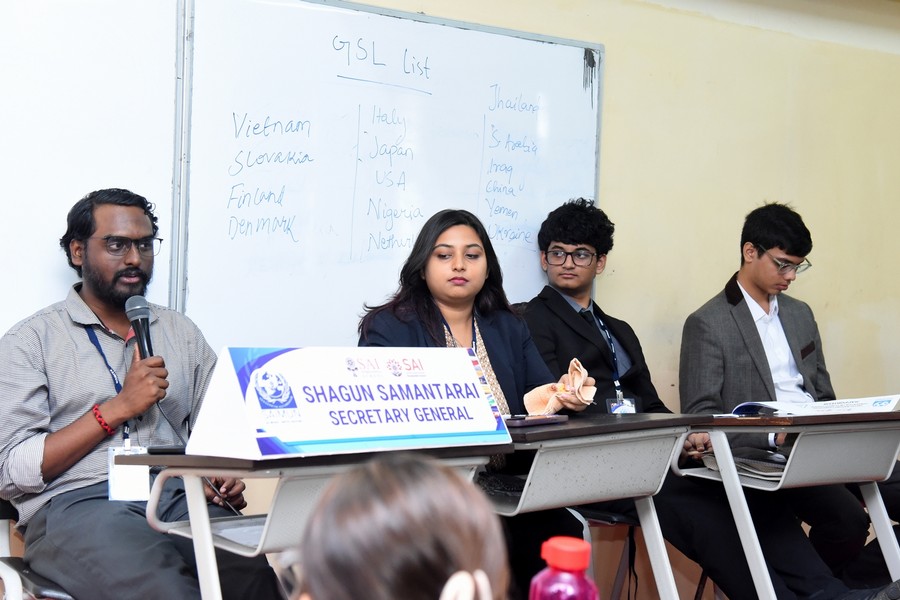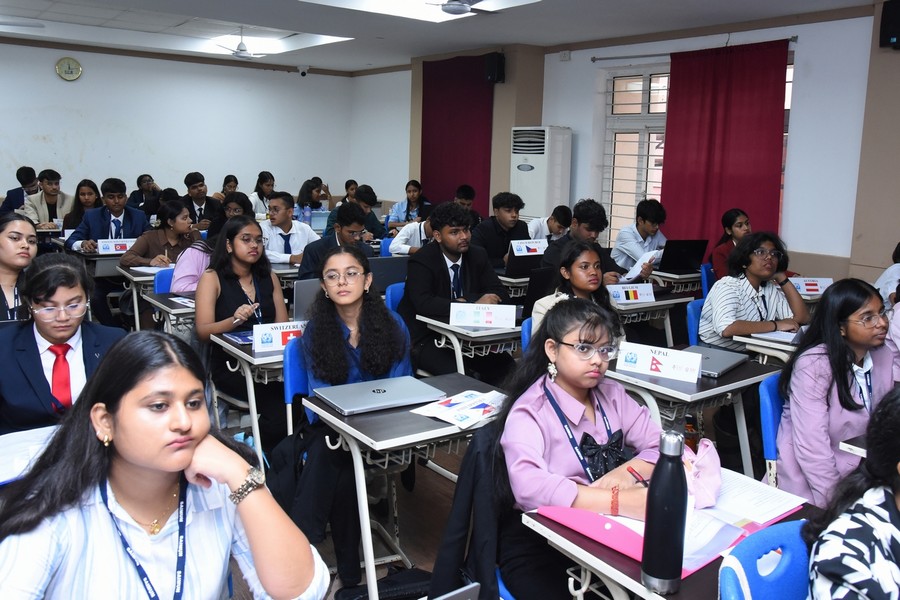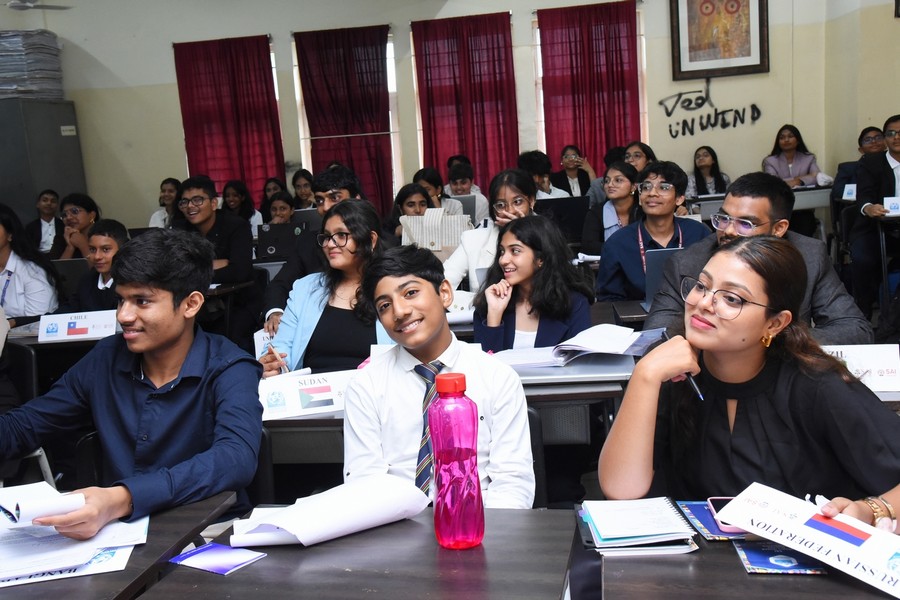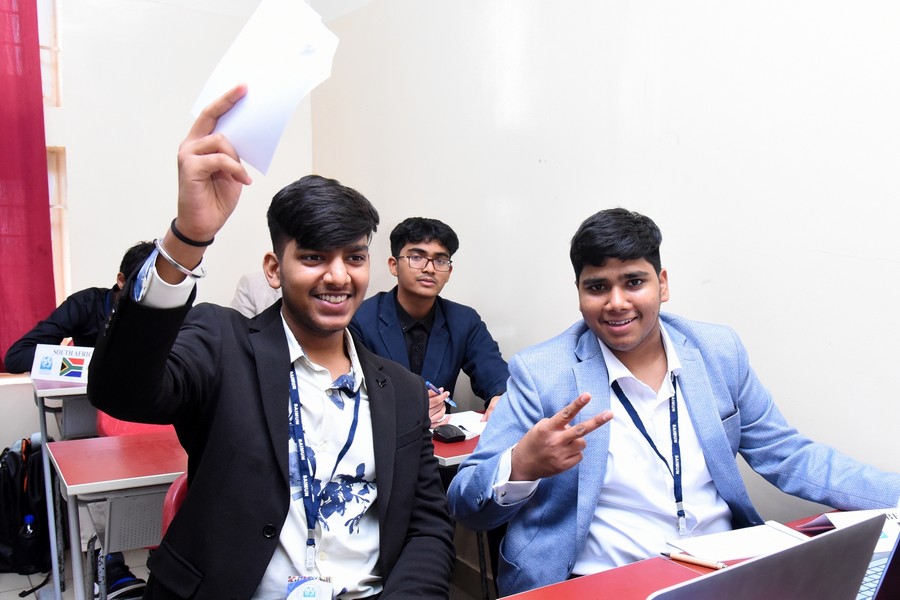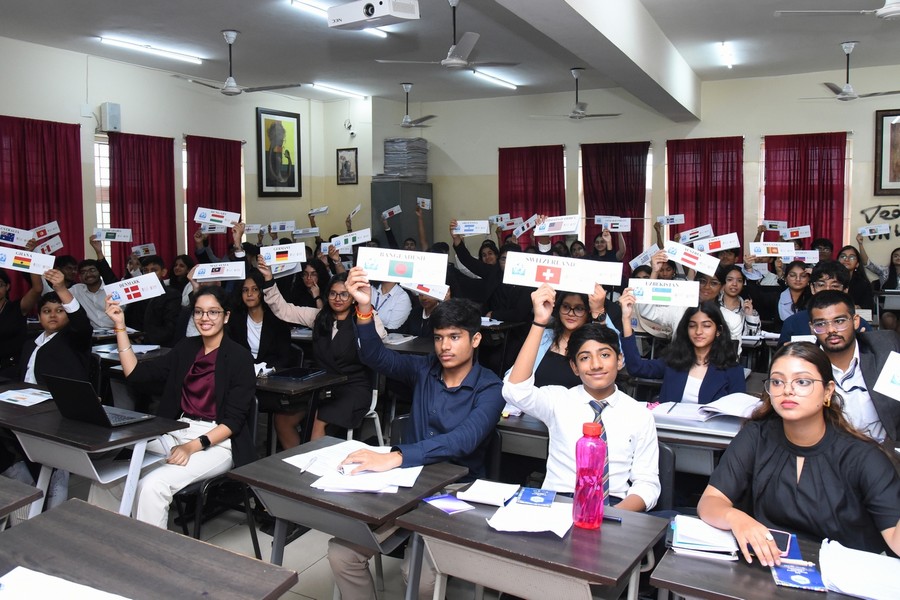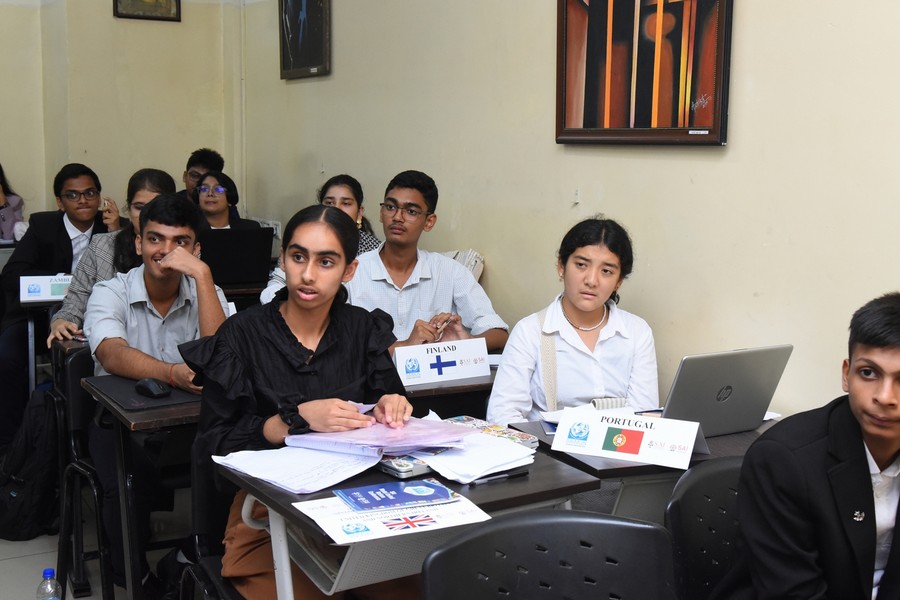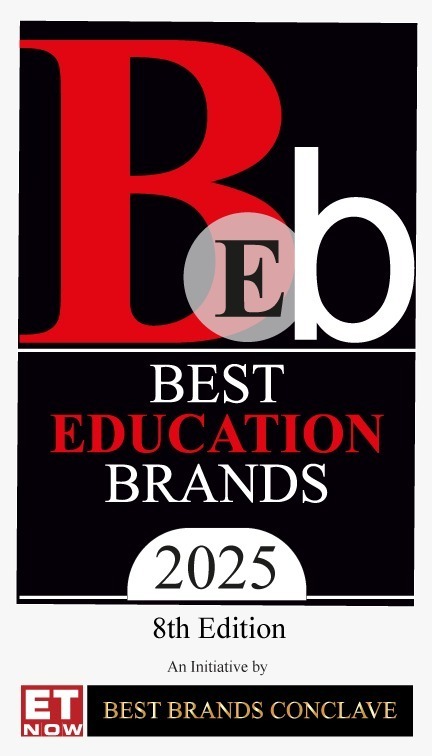“Informed dialogue is the most powerful form of peacebuilding.” - Anonymous
Day 1 of SAIMUN 2025 unfolded with a dynamic blend of passionate dialogue, critical thinking, and thought-provoking diplomacy across multiple high-impact committees. Delegates from across 23 countries and 26 schools demonstrated exceptional insight, professionalism, and empathy as they tackled some of the world’s most pressing global challenges. Here’s a glimpse into the highlights from 5 powerful committees that set the tone for a transformative MUN experience.
World Health Organization (WHO)
The WHO committee opened with a compelling overview of Non-Communicable Diseases (NCDs), focusing on their increasing burden and global implications. Delegates discussed effective strategies for prevention, global collaboration, and public health infrastructure. A key focus was Sustainable Development Goal 3, which aims to ensure healthy lives and promote well-being for all. Notably, Poland called out Thailand and Bulgaria for falling short on healthcare standards, while DPR Korea emphasised the need for unbiased access to healthcare. The Philippines proposed a “Shared Funding Program” to support low- and middle-income countries in boosting healthcare. The day ended with active collaboration and actionable solutions, showcasing the committee’s dedication to global well-being.
United Nations Framework Convention on Climate Change (UNFCCC)
Climate diplomacy took center stage in the UNFCCC committee, where delegates tackled the urgent challenge of air pollution and toxic emissions. A diverse General Speakers’ List laid the groundwork for focused caucuses on topics such as technological transfer, climate finance, and urban air quality. Motions raised by Australia, Zambia, and the Russian Federation led to vibrant debates on the role of healthcare systems during pollution-induced health crises and the responsibilities of developed countries to support climate-vulnerable nations. Australia’s motion on healthcare and air pollution was passed by a majority, marking a significant milestone in the day’s proceedings.
UNGA-DISEC (Disarmament and International Security Committee)
The DISEC committee launched with a strong agenda on “Global Arms Trade and the Impact of the US Second Amendment.” Delegates engaged in powerful speeches, with Italy urging balance in the global narrative and India calling for strengthened disarmament efforts while maintaining neutrality. Tough questions were directed at the United States, whose delegates responded with skill and diplomacy. A Moderated Caucus on the regulation of small arms in conflict zones and the threat posed by non-state actors further deepened the discourse, reflecting the delegates’ ability to dissect complex geopolitical issues with confidence and clarity.
UN Women (United Nations Entity for Gender Equality and the Empowerment of Women)
The UN Women committee tackled the deeply significant agenda of “Strategies to Support Afghan Civil Society and Women-led Organizations Amid Taliban Rule.” Spearheaded by a motion from the Republic of Korea, with Israel as sponsor, and an opening speech by Zambia, the debate illuminated global concern over the repression of women in Afghanistan. Delegates from Sri Lanka, Tunisia, India, Czechia, Austria, and Bangladesh shared legal, cultural, and technological interventions from constitutional protections to scholarship programs and digital learning tools. Unmoderated and moderated caucuses passed by China and Czechia reflected a growing consensus around cross-regional collaboration to support women’s rights, education, and healthcare access.
UNHCR (United Nations High Commissioner for Refugees)
With the agenda set on the Persecution of Tibetan Buddhists in China, the UNHCR committee delivered one of the most passionate and ideologically intense debates of the day. Countries like the United States, Germany, India, and the Netherlands raised concerns over China’s reported human rights violations and cultural suppression. China’s delegate defended its national policy, invoking sovereignty and anti-separatism, which prompted further debate. Moderated caucuses addressed the inclusion of Tibetan Buddhists in Chinese society and the role of neutral nations in refugee support. Delegates drafted working papers proposing international interventions and better monitoring of human rights conditions, demonstrating diplomacy grounded in empathy and advocacy.
The Spirit of SAIMUN 2025
The first day of SAIMUN 2025 offered a vivid tapestry of critical dialogue, youth diplomacy, and cross-cultural collaboration. From health equity to gender justice, arms regulation to religious freedom, the delegates brought real-world issues to life with powerful voices and visionary thinking.
As the committees move forward, the energy, intellect, and empathy displayed by these future global leaders continue to reflect SAIMUN’s core values — “One World, One Family.”
